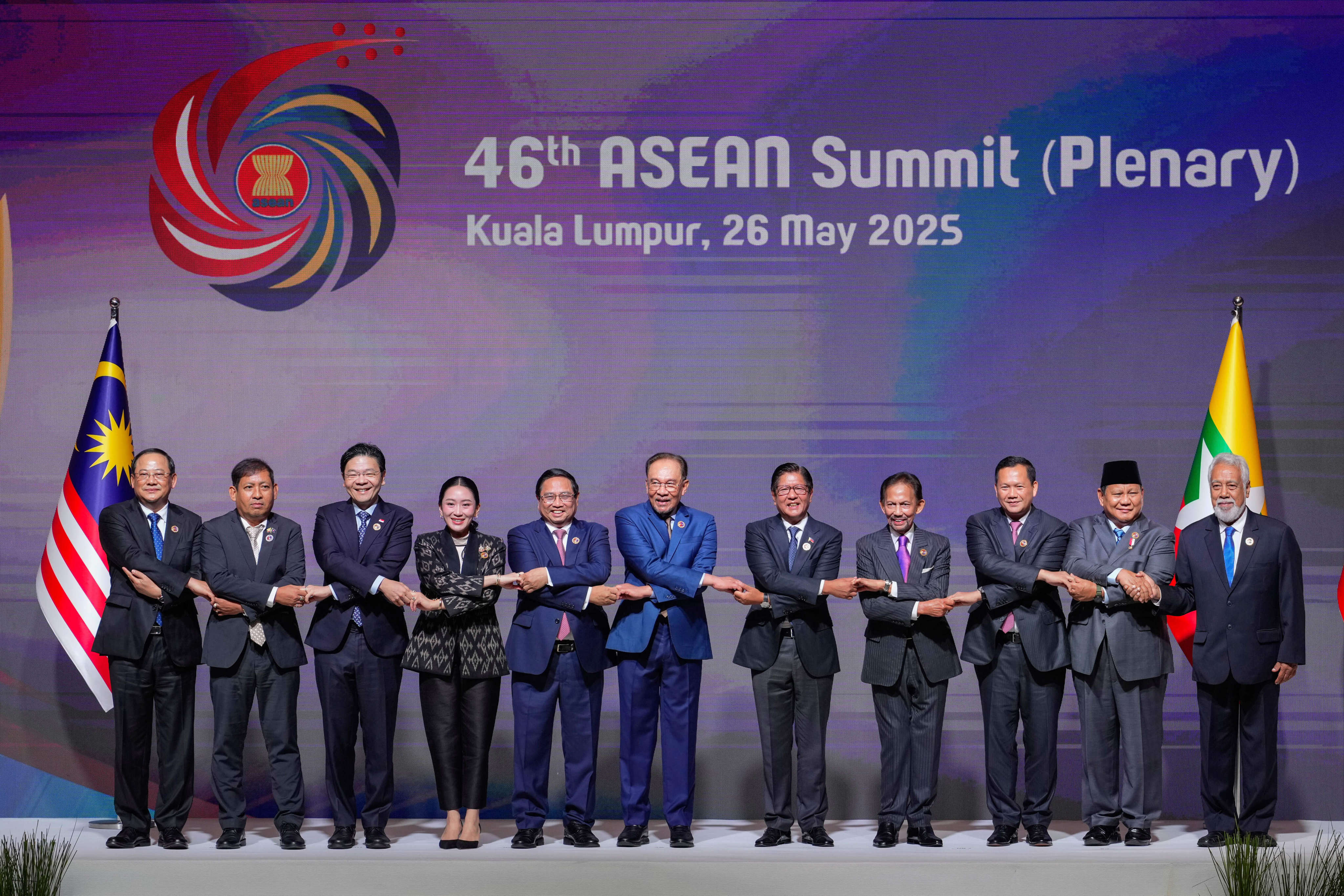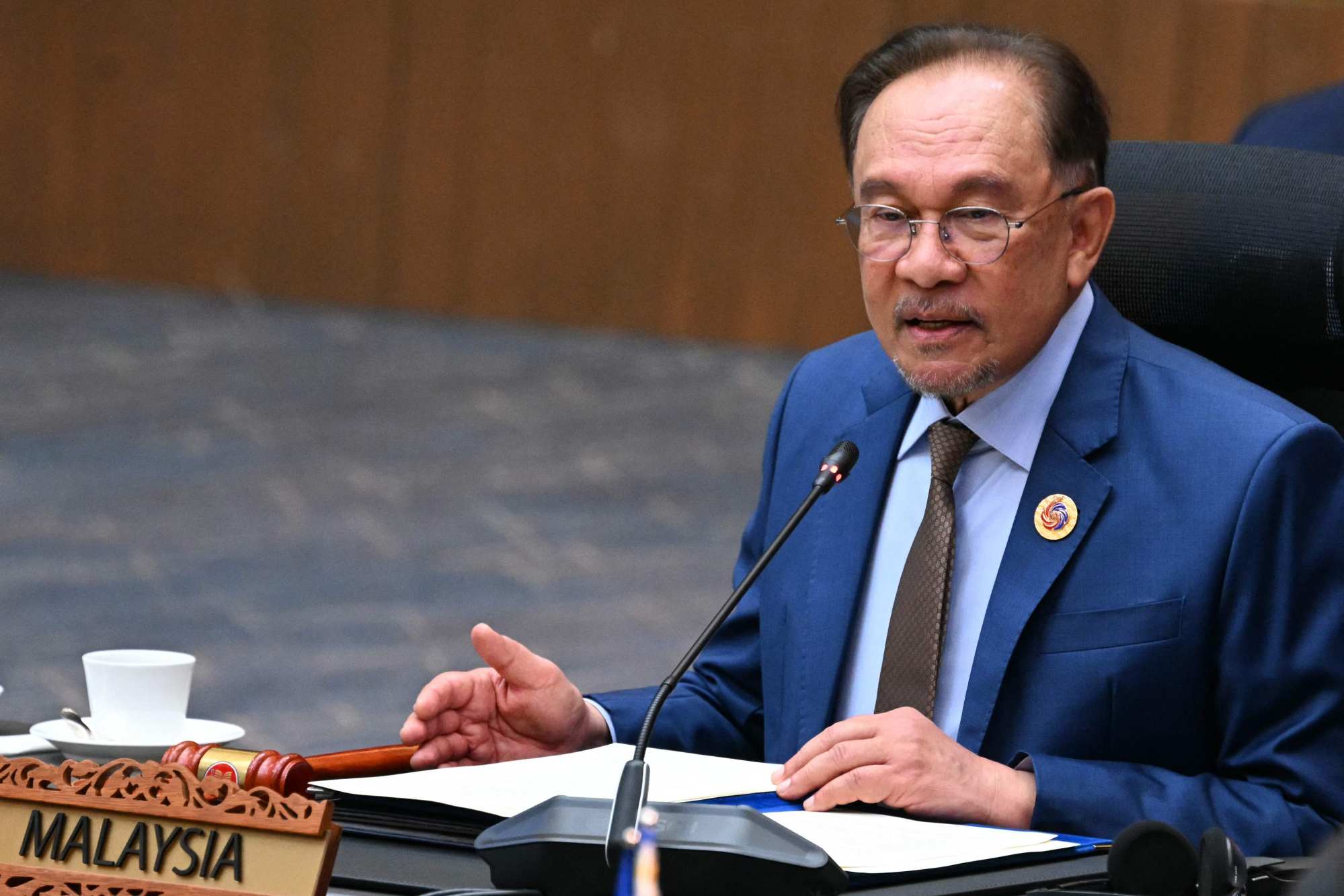Asean summit opens in Malaysia with trade dismay, US tariffs top of mind
Discussions will also focus on finding a unified approach to Myanmar’s civil war and advancing a code of conduct for the South China Sea

Southeast Asian leaders are meeting in Malaysia on Monday seeking trade deals with new partners as US tariffs threaten unprecedented damage to their export-reliant economies.
The two-day Asean summit in Kuala Lumpur is also expected to increase pressure on Myanmar’s military junta and attempt to resolve issues with East Timor’s application to join the bloc.
It comes as growth across the region has taken a hit from US President Donald Trump‘s threatened tariffs, with levies of up to 49 per cent set to be imposed on member states unless they can make deals before a July deadline.
The tariff upheaval has pushed the 10-member Association of Southeast Asian Nations to pursue trade deals with non-US partners and increase intra-bloc trade and business cooperation.
Malaysian Prime Minister Anwar Ibrahim on Monday lamented that the very foundations of free trade were being “dismantled under the force of arbitrary action”.

But he added in his opening remarks at the summit that he believed in “the fortitude and staying power of Asean to withstand the headwinds and weather the storms of the challenges and uncertainties facing us.”
To navigate the uncertainty, the bloc is swiftly seeking new trade deals.
Asean’s economic ministers completed talks with China on an upgraded free trade deal last week, and have also agreed to work on reducing trade barriers between members of the bloc.
On Tuesday, the bloc will hold its first summit with China and the Gulf Cooperation Council – a political and economic alliance of six Middle Eastern countries – in a sign of its readiness to embrace new markets.
“It won’t happen overnight or even at the end of Malaysian chairmanship, but the American ‘Liberation Day’ tariffs have certainly forced Asean to rethink its role and its approach in protecting the interests of the member states,” said Adib Zalkapli, managing director of geopolitical and public policy advisory firm Viewfinder Global Affairs.
The American ‘Liberation Day’ tariffs have certainly forced Asean to rethink its roleAdib Zalkapli, geopolitical analyst
Asean will also discuss appointing a permanent special envoy to Myanmar to negotiate peace talks between the junta and rebel forces, instead of changing envoys according to the annual rotation of the bloc’s chairmanship.
Myanmar’s military leadership is currently banned from attending Asean summits.
Malaysia’s Foreign Minister Mohamad Hasan on Saturday urged combatants in Myanmar to “cease hostilities, and to extend and expand the ceasefire” beyond the current deal that expires at the end of May to allow for the start of peace negotiations.
The ceasefire was agreed in the wake of the March 28 earthquake that killed at least 3,800 people, but multiple breaches have since been reported, including a junta air strike on a school in the Sagaing region earlier this month that left dozens of children dead.
After meeting with Malaysia’s Anwar last month, Myanmar’s junta chief Min Aung Hlaing agreed to extend the ceasefire and to allow unimpeded aid into the country.
Millions have fled Myanmar into neighbouring Thailand to evade conflict and conscription.
“Asean must now pivot and adopt an enforceable bloc-wide fuel and arms embargo on the junta,” human rights group Fortify Rights said in a statement.
Meanwhile, Malaysia’s foreign minister has said Asean “cannot remain silent” on Israel’s war in Gaza, stressing that the “atrocities” committed there were a “direct result of the erosion of the sanctity of international law”.
This week’s summit is also expected to discuss a South China Sea code of conduct. Negotiations for a code with China have dragged on without resolution despite an increasing number of flashpoints emerging.
China lays claim to almost the entire waterway – through which at least US$3 trillion in global trade passes annually – overlapping with competing claims from Vietnam, Malaysia, Brunei and the Philippines.